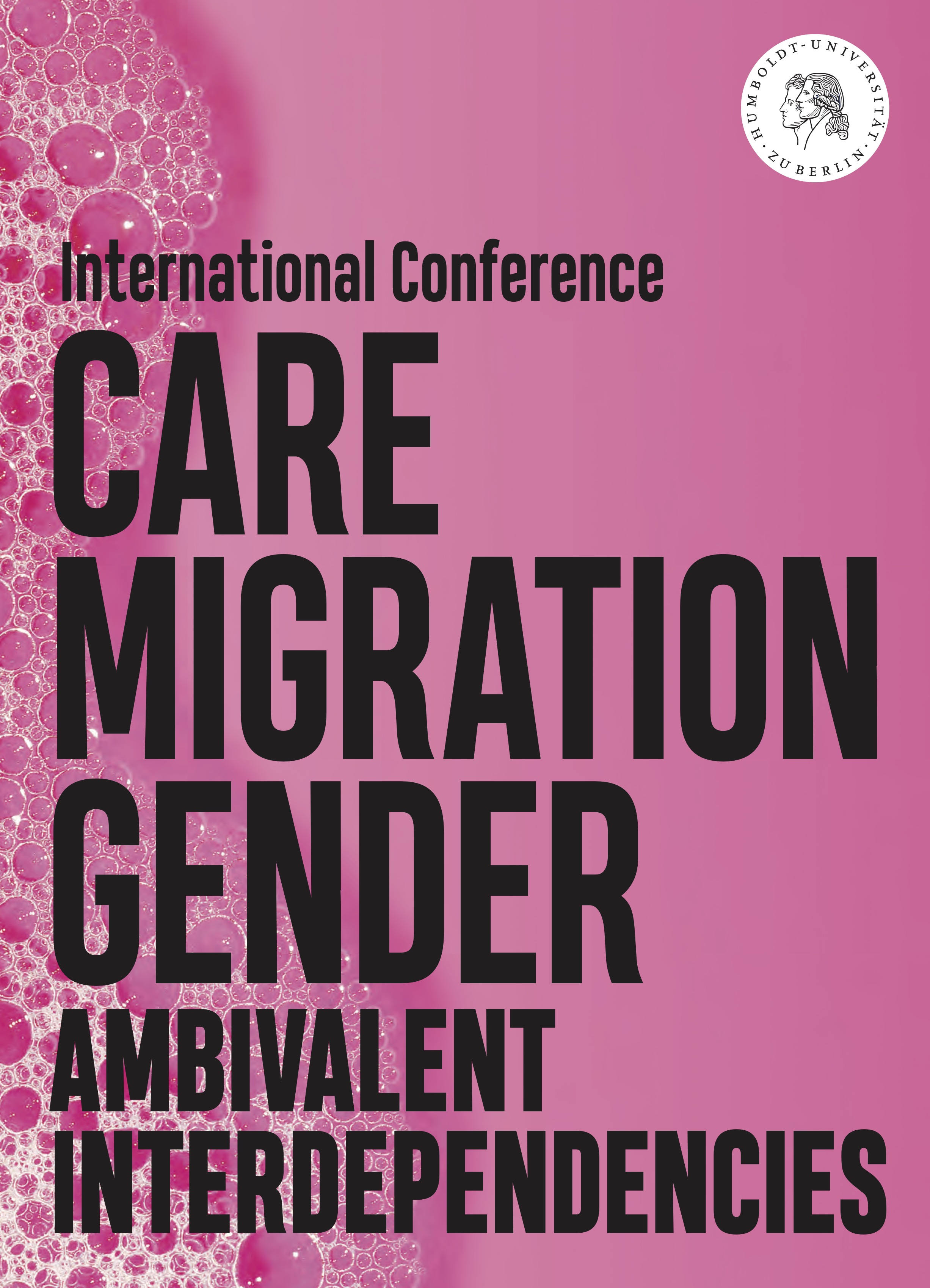Capability, Care, and Personal Assistance: Making Connections
DOI:
https://doi.org/10.17169/ogj.2021.109Keywords:
Capability Approach, Care, Contract, Disability, EthicsAbstract
The Capability Approach/Capability Theory (CA/T) makes the normative claim that freedom to achieve well-being is of primarymoral importance. It has made significant contributions in its original field of Development Studies and has also been used in other fields as a framework to assess the relation between well-being and socio-economic contexts, to inform policies for social change. CA/T’s move from a focus only on resources (redistribution) reveals how the relation between the elements of participation and freedom in the achievement of well-being becomes contested. This paper will use two examples from empirical research conducted with disabled people, their personal assistants and care workers to explore how attention to participation, connection, and affiliation can further develop CA/T.
References
Anderson, Bridget (Ed.) (2020): Methodological Note to Accompany D5.3 national case studies. https://migration.blogs.bristol.ac.uk/research-projects/bodies-borders-justice/ethos/ethos-outputs/ (04.09.2020).
Aubrecht, Katie/Kelly, Christine/Rice, Carla (2020): The Aging-Disability Nexus. Columbia: The University of British Columbia.
Boyle, Geraldine (2008): Autonomy in long‐term care: a need, a right or a luxury?. In: Disability & Society, 23 (4), 299–310. doi: http://doi.org/10.1080/09687590802038795
Brito, Laura (2018): Being Paid to Care For or Care About? Ethnographies of Home Care, National Report, Portugal. https://www.ethos-europe.eu/working-papers-country-reports (04.09.2020).
Fields, Deborah/Kafai, Yasmin (2009): A Connective Ethnography of Peer Knowledge Sharing and Diffusion in a Tween Virtual World. In: International Journal of Computer Supported Collaborative Learning 4 (1), 47–68. doi: http://doi.org/10.1007/s11412-008-9057-1
Fraser, Nancy (2005): Mapping the Feminist Imagination. From Redistribution to Recognition to Representation. In: Constellations 12 (3), 295–307. doi: http://doi.org/10.1111/j.1351-0487.2005.00418.x
Fraser, Nancy (1998): From redistribution to recognition? Dilemmas of justice in a „post-socialist“ age. In: Willett, Cynthia (Ed.): Theorizing Multiculturalism. A Guide to the Current Debate. Malden, Massachusetts: John Wiley & Sons, 19–49.
Fraser, Nancy/Honneth, Axel (2003): Redistribution or Recognition? A Political-Philosophical Exchange. New York: Verso.
Gellert, Paul/Feldman, Shelley (2006): The Seductive Quality of Central Human Capabilities. Sociological Insights into Nussbaum’s and Sen’s Disagreement. In: Economy and Society 35 (3), 423–452. doi: http://doi.org/10.1080/03085140600845008
Guess, Doug/Benson, Holly Anne/Siegel-Causey, Ellin/Agran, Martin (2008): Concepts and Issues Related to Choice Making and Autonomy among Persons with Severe Disabilities. In: Research and Practice for Persons with Severe Disabilities 33 (1–2), 75–81. doi: http://doi.org/10.2511/rpsd.33.1-2.75
Kittay, Eva (1999): Love’s labor: essays on women, equality, and dependency. New York: Routledge.
Khader, Serene/Kosko, Stacey (2019): “Reason to Value”: Process, Opportunity, and Perfectionism in the Capability Approach. In: Keleher, Lori/Kosko, Stacy J. (Ed.): Agency and Democracy in Development Ethics. Cambridge: Cambridge University Press, 178–204. doi: http://doi.org/10.1017/9781108163880
Kröger, Teppo (2009): Care Research and Disability Studies: Nothing in common?. In: Critical Social Policy 29 (3), 398–420. doi: http://doi.org/10.1177/0261018309105177
Leahy, Ann (2018): Too Many “False Dichotomies”? Investigating the division between ageing and disability in social care services in Ireland: a study with statutory and non-statutory organisations. In: Journal of Aging Studies 44 (1), 34–44. doi: http://doi.org/10.1016/j.jaging.2017.09.005
Meier, Isabelle (2018): “You really need to hold back – you are only the surrogate eye”. Personal Assistance in Austria. https://www.ethos-europe.eu/sites/default/files/5.3_austria.pdf (11.05.2021).
Mitra, Sophie (2006): The Capability Approach and Disability. In: Journal of Disability Policy Studies 16 (4), 237–247. doi: http://doi.org/10.1177/10442073060160040501
Norwich, Brahm (2014): How does the Capability Approach Address Current Issues in Special Educational Needs, Disability and Inclusive Education Field?’. In: Journal of Research in Special Educational Needs 14 (1), 16–21. doi: http://doi.org/10.1111/1471-3802.12012
Nussbaum, Martha (2003): Capabilities as Fundamental Entitlements. Sen and Social Justice. In: Feminist Economics 9 (2/3), 33–59. doi: http://doi.org/10.1080/1354570022000077926
Oldman, Christin (2002): Later Life and the Social Model of Disability: A Comfortable Partnership? In: Ageing and Society 22 (6), 791–806. doi: http://doi.org/10.1017/S0144686X02008887
Oliver, Mike (2013): The Social Model of Disability: thirty years on. In: Disability and Society 28 (7), 1024–1026. doi: http://doi.org/10.1080/09687599.2013.818773
Oliver, Mike (1983): Social Work with Disabled People. Basingstoke: MacMillan.
Priestley, Mark (1999): Disability Politics and Community Care. London: Jessica Kingsley Publishers.
Rippon, Simon/Theuns, Thomas/de Maagt, Sem/Zala, Mikos/van den Brink, Bert (2018): Report on the European Heritage of Philosophical Theorizing about Justice. https://ethos-europe.eu/sites/default/files//docs/d2.1_website_report_complete.pdf (18.12.2018).
Robeyns, Isabelle (2003): Is Nancy Fraser’s Critique of Theories of Distributive Justice Justified? In: Constellations 10 (4), 538–554. doi: http://doi.org/10.1046/j.1351-0487.2003.00352.x
Saxton, Marsha/Powers, Laurie/Eckels, Karyl/Curry, Mary-Ann/Maley, Susan/Gross, Jacqueline (2001): ”Bring me my scooter so I can leave you”. A Study of Disabled Women Handling Abuse By Personal Assistance Providers. In: Violence Against Women 7 (4), 393–417.
Sen, Amartya (2004): Capabilities, Lists and Public Reasons: Continuing the Conversation. In: Feminist Economics 10 (3), 77–80. doi: http://doi.org/10.1080/1354570042000315163
Sen, Amartya (1999): Development as Freedom. New York: Knopf.
Sen, Amartya (1993): Capability and Well-being. In: Nussbaum, Martha/Sen, Amartya (Ed.): The Quality of Life. Oxford: Clarendon Press, 30–53.
Sen, Amartya (1985): Well-being, Agency and Freedom. The Dewey Lectures 1984. In: Journal of Philosophy 82 (4), 169–221.
Sen, Amartya (1984): Resources, Values and Development. Oxford: Basil Blackwell.
Silvers, Anita (1997): Disability Rights. In: Chadwick, Ruth (Ed.): The Encyclopedia of Applied Ethics, ed. Ruth Chadwick. San Diego: Academic Press, Inc.
Terzi, Lorella (2010): Justice and Equality in Education. A Capability Perspective on Disability and Special Educational Needs. London: Bloomsbury.
Terzi, Lorella (2005): Beyond the Dilemma of Difference. The Capability Approach to Disability and Special Educational Needs. In: Journal of Philosophy of Education 39 (3), 443–459. doi: http://doi.org/10.1111/j.1467-9752.2005.00447.x
Thomas, Carol (2004): How is disability understood? An examination of sociological approaches. In: Disability & Society 19 (6), 569–583. doi: http://doi.org/10.1080/0968759042000252506
Trani, Jean-Francois/Bakshi, Parul/Bellanca, Nicolò/Biggeri, Mario/Marchetta, Francesca (2011): Disabilities through the Capability Approach Lens. Implications for Public Policies. In ALTER-European Journal of Disability Research/Revue Européenne de Recherche sur le Handicap 5 (3), 143–157. doi: http://doi.org/10.1016/j.alter.2011.04.001
Tronto, Joan (1993): Moral Boundaries. A Political Argument for an Ethic of Care. New York, Routledge.
van den Brink, Bert/Rippon, Simon/Theuns, Thomas/Zala, Mikos (2018): Report on the workshop ‘’Ideal and Non-Ideal theories of Justice’’: Towards a Non-Ideal Theory of Justice in Europe. https://ethos-europe.eu/sites/default/files//docs/d2.2_loaded_website_version.pdf (18.12.2018).
Wehmeyer, Michael (2005): Self-Determination and Individuals with Severe Disabilities: Re-examining meanings and misinterpretations. In: Research and Practice for Persons with Severe Disabilities 30 (3), 113–120. doi: http://doi.org/10.2511/rpsd.30.3.113
Winance, Myriam/Damamme, Aurélie/Fillion, Emmanuelle (2015): Thinking the Aid and Care Relationship from the Standpoint of Disability: stakes and ambiguities. In: Alter 9 (3), 163–168. doi: http://doi.org/10.1016/j.alter.2015.05.007

Downloads
Published
How to Cite
Issue
Section
Categories
License
All contributions in Open Gender Journal are published under the Creative Commons Attribution 4.0 International license. You may freely make use of the corresponding texts in accordance to the conditions of the license (License contract, generally understandable version). There is no exclusive transfer of usage rights ("copyright transfer"). Open Gender Journal does not charge authors any costs for publication (so-called Article Processing Charges, APC) or submission (so-called Submission Charges). Authors are encouraged to share their contributions in other places, such as repositories.













